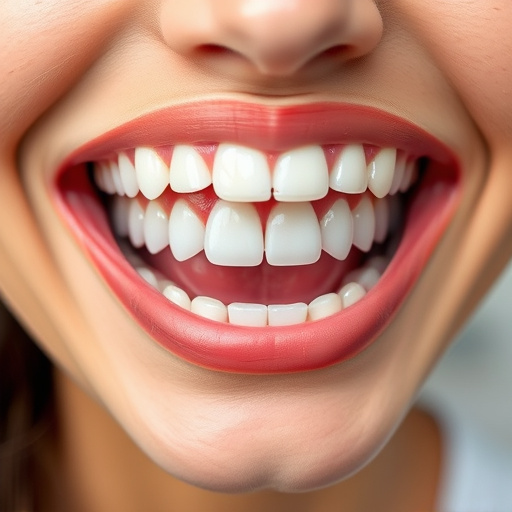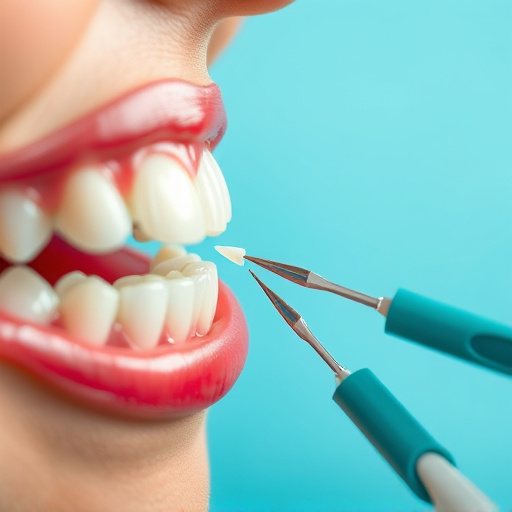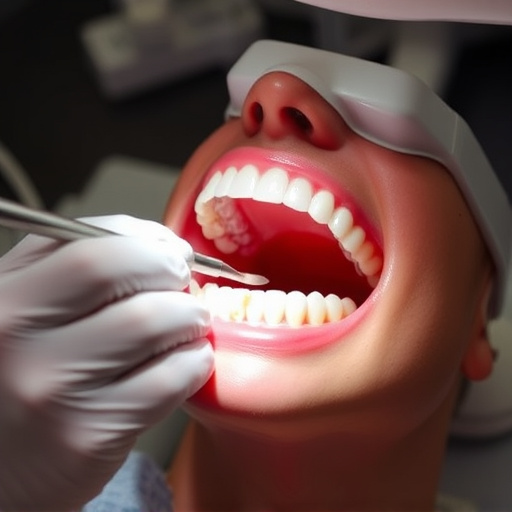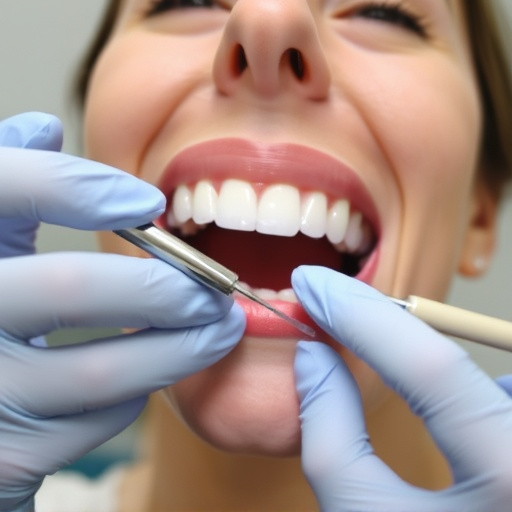Tooth sensitivity, driven by exposed dentin, indicates potential dental problems stemming from decay, recession, or enamel wear. Triggers include emerging teeth in kids, aggressive brushing, acidic foods, and unsuitable oral care products. Effective tooth sensitivity treatment involves regular dental check-ups, gentler brushing, switching to protective toothpaste, and, in severe cases, cosmetic fillings or repair procedures for lasting relief. Specialized toothpaste with potassium nitrate or strontium chloride can desensitize teeth. More serious cases may necessitate fluoride applications, sealing agents, wisdom tooth removal, enamel reshaping, or bonding. Maintaining strong oral health post-treatment requires good hygiene, flossing, and regular dental visits.
Tooth sensitivity can be a painful experience, but it’s a common issue with effective solutions. This article explores in-depth how to address and treat sensitive teeth, delving into the underlying causes and triggers. From identifying specific sensitivities to examining various treatment options, you’ll discover strategies to strengthen and protect your teeth. Learn about long-term care maintenance tips to ensure lasting oral health and alleviate sensitivity discomfort, empowering you to take control of your dental well-being. Discover the best tooth sensitivity treatment methods here.
- Understanding Tooth Sensitivity: Causes and Common Triggers
- Exploring Effective Treatment Options for Sensitive Teeth
- Long-term Care and Maintenance for Stronger, Healthier Teeth
Understanding Tooth Sensitivity: Causes and Common Triggers
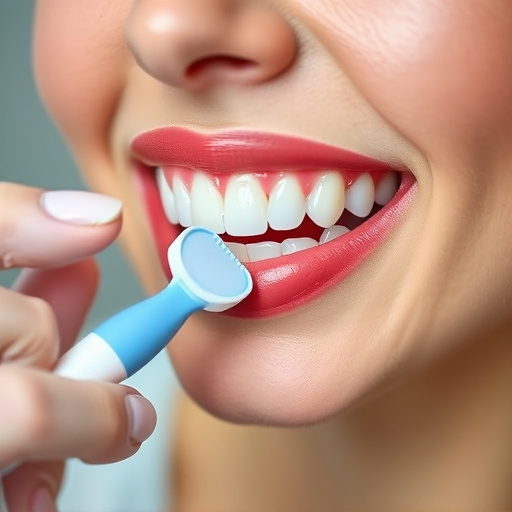
Tooth sensitivity, often characterized by a sharp pain or discomfort when consuming hot or cold foods and beverages, is more than just an annoyance—it’s a signal that something may be amiss with your dental health. Understanding the causes of tooth sensitivity is the first step towards finding effective tooth sensitivity treatment. Common triggers include tooth decay, gum recession, and enamel wear, which expose the sensitive dentin layer beneath.
In children’s dentistry, it’s not uncommon for young patients to experience tooth sensitivity due to emerging teeth or gum inflammation. Over time, improper brushing techniques, consuming highly acidic foods and drinks, or even certain oral care products can contribute to the problem. Addressing these issues through regular dental check-ups, adopting gentler brushing habits, and switching to dentin-protective toothpaste can go a long way in managing sensitivity. In some cases, cosmetic fillings or tooth repair procedures may be recommended to cover exposed areas and provide lasting relief.
Exploring Effective Treatment Options for Sensitive Teeth
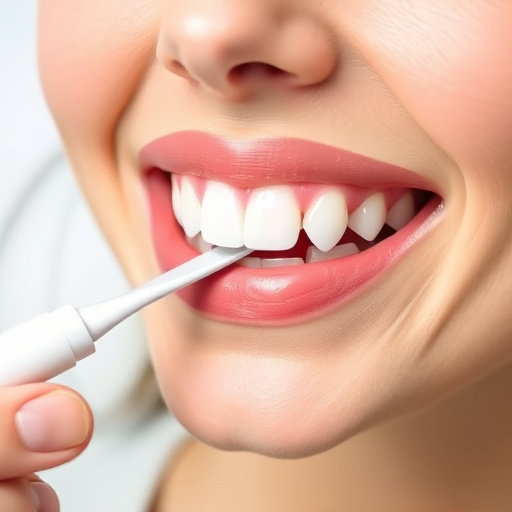
Tooth sensitivity can be a common and frustrating issue, but there are numerous effective treatment options available to help manage and even prevent it. Exploring these treatments is essential for maintaining strong, healthy teeth. One of the most direct approaches is through specialized toothpastes designed to desensitize the enamel and reduce nerve irritation. These pastes contain ingredients like potassium nitrate or strontium chloride, which help block the tubes leading to the tooth’s pulp, thus minimizing sensitivity.
For more severe cases, a visit to the dentist might be necessary. Procedures such as fluoride applications, dental sealing agents, or in some instances, wisdom tooth removal can address the root causes of sensitivity. Children’s dentistry experts can also provide guidance on proper oral hygiene practices and dietary adjustments to prevent early-onset sensitivity. Additionally, tooth repair techniques like enamel reshaping or bonding can help restore damaged areas, reducing sensitivity over time.
Long-term Care and Maintenance for Stronger, Healthier Teeth
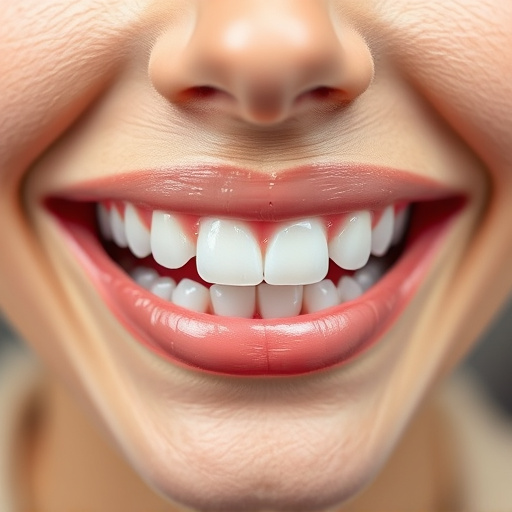
After receiving a tooth sensitivity treatment, proper long-term care is essential to maintain stronger and healthier teeth. This includes adopting good oral hygiene practices such as brushing twice daily with a soft-bristled toothbrush and using fluoride toothpaste to strengthen enamel. Additionally, regular flossing helps remove plaque buildup, which can contribute to tooth decay and sensitivity.
Regular dental visits for routine oral exams and professional cleanings are crucial in the long run. These appointments allow dentists to monitor your teeth’ health, catch potential issues early on, and provide tailored advice for maintaining optimal oral hygiene. Emergency dental care should also be considered as a backup plan for sudden dental emergencies that may arise despite diligent maintenance.
Tooth sensitivity doesn’t have to be a constant discomfort. By understanding the causes and triggers, exploring effective treatments like desensitizing toothpaste and professional procedures, and implementing long-term care strategies, you can achieve stronger, healthier teeth. Incorporating these practices into your oral hygiene routine supports lasting tooth sensitivity treatment and enhances your overall dental well-being.








